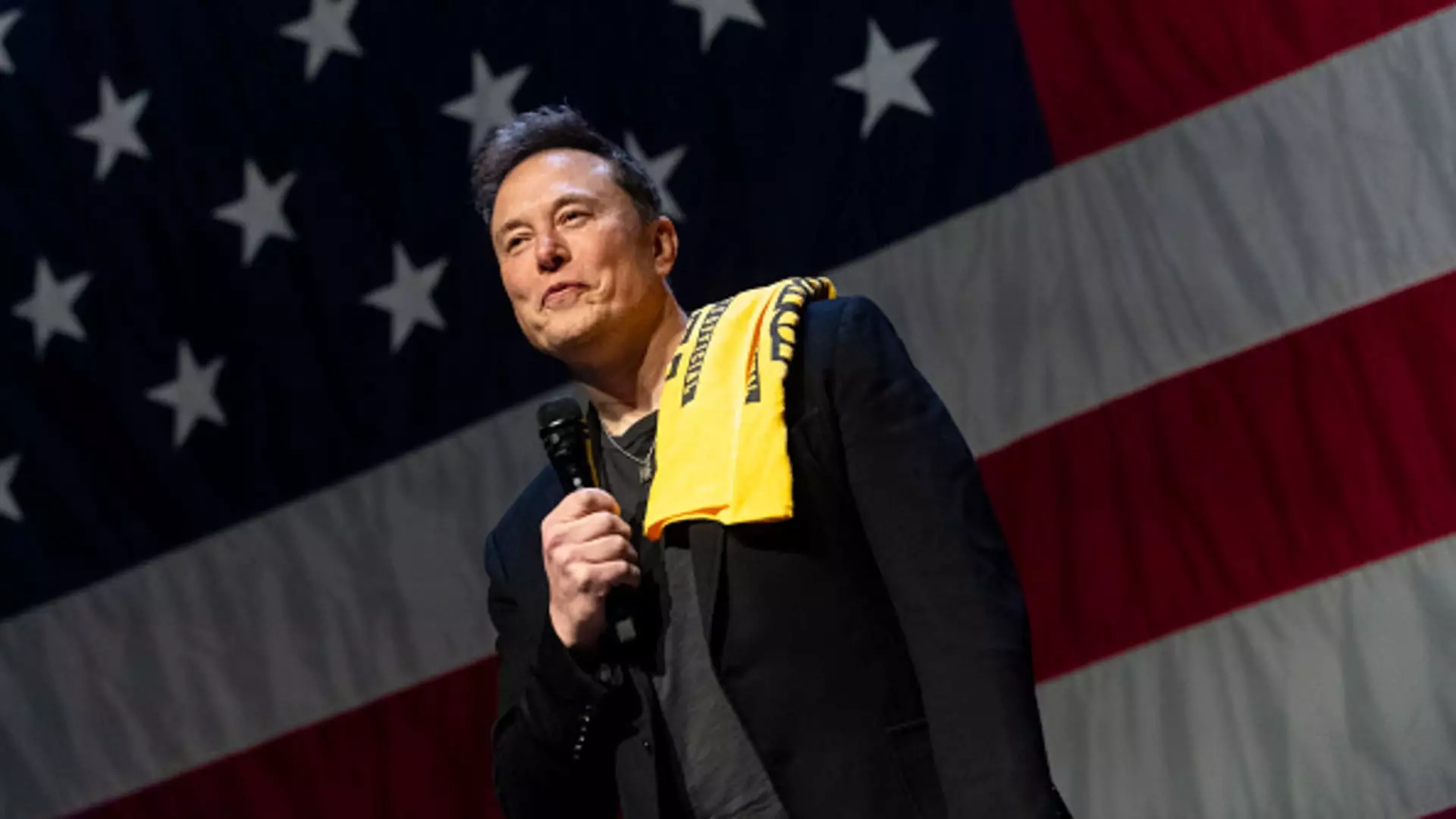In the ever-turbulent arena of American politics, the intersection of campaign financing and electoral integrity continues to spark debates and legal battles. Recently, the Philadelphia District Attorney’s Office has initiated a lawsuit against Elon Musk and his political action committee (PAC), America PAC, over the controversial $1 million prizes being awarded to voters in critical swing states. This legal action, rooted in concerns surrounding the legality and ethical implications of such promotions, is poised to unfold in both federal and state courts, prompting critical questions about the impact of private funds on public elections.
The lawsuit, spearheaded by Philadelphia DA Larry Krasner, asserts that Musk’s financial inducements constitute an illegal and unregulated lottery that could impede the fairness of the electoral process. Krasner’s allegations identify the $1 million giveaways as an unlawful attempt to influence voter behavior in the upcoming presidential election between incumbent Vice President Kamala Harris and former President Donald Trump, who has garnered significant backing from Musk. The DA’s position emphasizes that these monetary incentives compromise the integrity of voter choice, transforming civic engagement into a gamified experience that correlates with financial gain rather than informed decision-making.
Musk’s team has pushed back vehemently against these claims, asserting that since America PAC operates as a federally registered entity, it is shielded from state jurisdiction regarding election laws. Their argument hinges on the notion that Krasner’s lawsuit mainly stems from a misinterpretation of the right to promote voter engagement, likening the cash prizes to a competitive arena rather than a coercive relationship between voter and financier. This legal standoff raises vital questions surrounding the boundaries of permissible political engagement and whether financial incentives can be ethically reconciled with democratic principles.
Compounding the complexities of this situation are the significant security concerns raised by Krasner’s attorneys, particularly in light of alleged antisemitic attacks directed at Krasner by Musk’s online followers. The situation escalated to a point where one individual reportedly published the prosecutor’s home address, exemplifying a dangerous mix of politics and social media harassment. In light of these threats, it is evident that the implications of high-stakes political involvement extend beyond financial concerns; they touch on issues of personal safety and the accountability of public figures.
As 2024 rapidly approaches, the heightened tension surrounding Musk’s entrenchment in the political sphere begs scrutiny of how his wealth and influence intertwine with electoral processes. Krasner’s lawsuit outlines an urgent need for accountability, contending that if Musk is allowed to continue promoting his lottery, it could set a precedent for similar actions in future elections, further distorting the democratic process.
A pivotal element of this unfolding debate lies in America PAC’s claims that it has already awarded a staggering $12 million through its lottery system. While this assertion suggests expansive engagement, it raises ethical questions regarding the implications of targeting voters in swing states—often deemed pivotal to election outcomes. Krasner’s assertion that these prizes entice citizens to surrender their personal information and alter their political affiliations underscores the discomfort surrounding such tactics.
Moreover, it is crucial to consider the broader implications of the U.S. Department of Justice’s prior warnings about possible violations of federal election law associated with this lottery. The hesitance of federal authorities to take action may signal the complexities involved in regulating emerging forms of political engagement influenced by powerful private entities. The outcome of this legal battle could provide significant clarity on the legality of contentious fundraising efforts while also protecting citizens from potential electoral manipulation.
Ultimately, the lawsuit against Elon Musk and America PAC reflects a crucial turning point in American politics, where the amalgamation of wealth, electoral influence, and voter engagement can lead to significant ramifications for the future. As the case navigates through federal and state courts, it serves as a reminder of the delicate balance that must be maintained to uphold the integrity of elections. It urges stakeholders to closely examine the dynamics between private funding and public decision-making, with a keen eye on the ramifications for participatory democracy in the United States. How this legal challenge unfolds may set critical precedents for future elections and the role of wealthy individuals in shaping political landscapes.


Leave a Reply